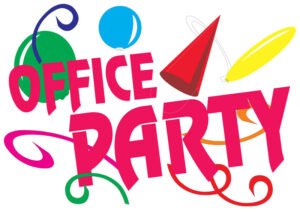#MeToo! has spawned a wave of internal investigations as companies respond to claims of sexual harassment and other wrongdoings in the workplace. The question often comes up: “Can an employer require employees to keep these investigations confidential?” The answer, at least for now, is a surprising – NO! The National Labor Relations Board (“NLRB”) has placed certain limitations on an employer’s right to direct employees from refrain from discussing investigations that are ongoing. This posture can be especially surprising to employers who are not unionized and therefore equally shocked that the NLRB can actually have jurisdiction and file a claim of unfair labor practices against a private employer.
The gist of the prohibition has its roots in Section 7 of the National Labor Relations Act (NLRA”). The NLRA provides that it is an unfair labor practice for an employer to have policies or procedures in place which unfairly restrict an employee’s right to openly discuss workplace issues, including internal investigations. Most recently, the NLRB has taken many companies to task over their social media policies, which can restrict free speech as it relates to the terms and conditions of employment, including supervision, safety and wages. Now the NLRB is turning its attention to companies who try to muzzle an employee from discussing an ongoing investigation.
In a 2015 decision, Banner Health Systems, the NLRB ruled that an employer violated the NLRA (Section 7), by asking an employee, who was the subject of an internal investigation, to refrain from discussing it while the investigation was ongoing. To balance against the employee’s right to free association and open discussion of workplace issues, the NLRB ruled that an employer must show: (1) a witness needing protection; or (2) evidence in danger of being destroyed; or (3) testimony in danger of being fabricated; or (4) a need to prevent a cover up.
Fast forward to this year, where the identical issue came before the NLRB. In that instance, Costco was found to have violated the NLRA by verbally instructing just one employee who was the subject of a workplace investigation to refrain from discussing the matter while the investigation was ongoing. Accordingly, employers need to be mindful – or at least aware- of the NLRB’s stance in this area in both unionized AND non-unionized settings.
The NLRA has a set of potential damages and remedies for violations of Section 7. These can include removal of any handbook or other policies that can be seen as interfering with an employee’s right to free association related to the terms and conditions of employment. Significantly, the NLRB will require an employer found to have violated the Act to place a Notice, in a conspicuous place, for at least 60 days stating in bold print: “NOTICE, THE NATIONAL LABOR RELATIONS ACT GIVES ALL EMPLOYEES THE RIGHT TO…(and then it lists the rights of employees, even non-union employees, available under the National Labor Relations Act”). While many employers may view this as an annoyance at best, such a Notice is the first step into educating employees about their rights to ultimately form a union and loss of control over the workplace by the employer. Other remedies include possible reinstatement of any employee who was terminated for conduct found to be in violation of the NLRA and backpay during the time out.
The NLRB has undergone a good deal of change during the current political administration. It remains to be seen if the new Board members will overturn Board precedent in many areas (including Banner Health Systems). Hopefully the Board will soften its views, as having the ability to keep investigations confidential can help insure the integrity of the process and maximize opportunity for reaching the right result.
With over 34 years’ experience in advising employers and employees on workplace issues, let Boznos Law work with you to ensure you are ready to meet the challenges posed by the changes to the employment laws. Call Bill Boznos today at (630) 375-1958 or contact us at www.boznoslawoffice.com/contact-us through our website.


